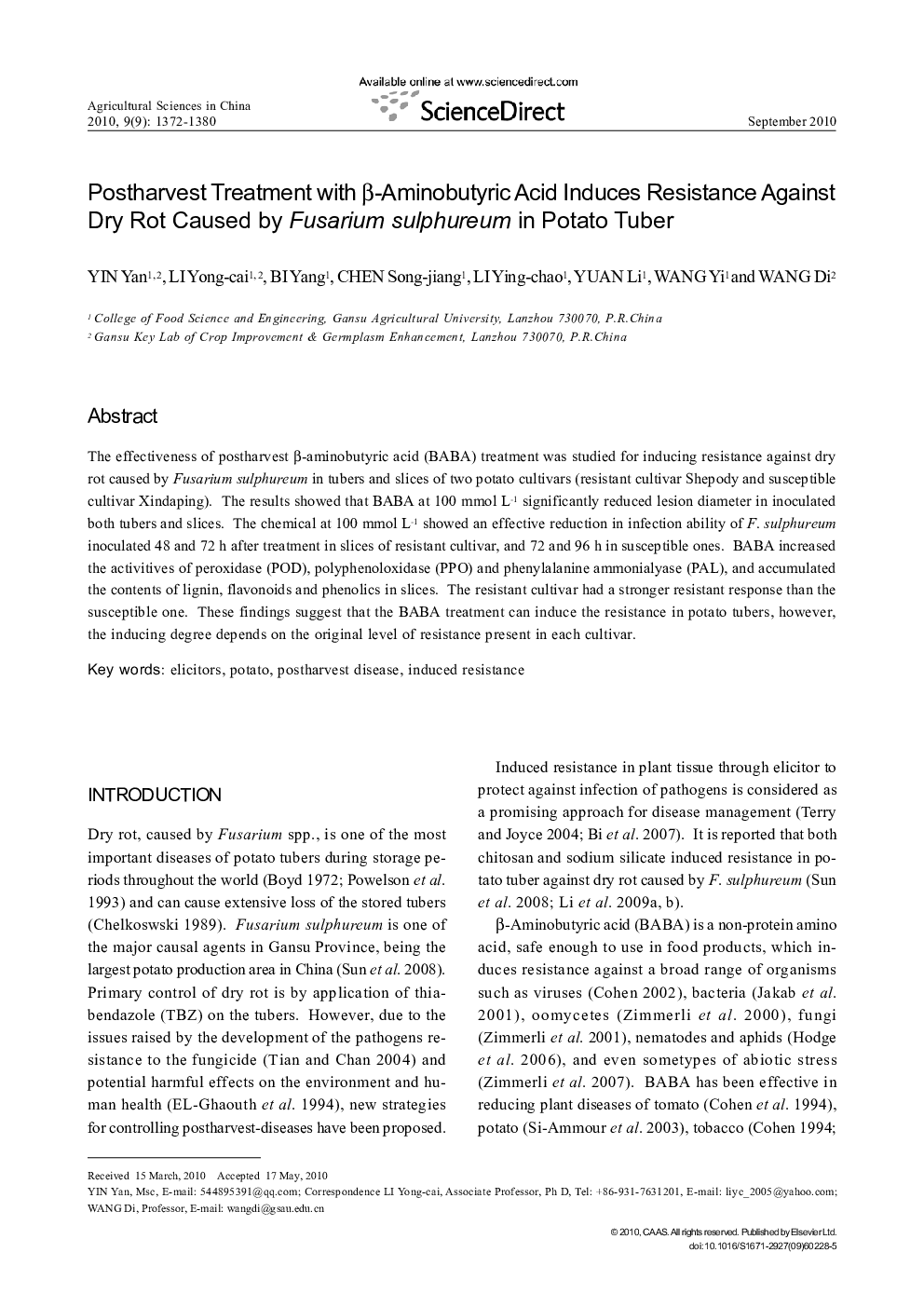| Article ID | Journal | Published Year | Pages | File Type |
|---|---|---|---|---|
| 4490073 | Agricultural Sciences in China | 2010 | 9 Pages |
The effectiveness of postharvest β-aminobutyric acid (BABA) treatment was studied for inducing resistance against dry rot caused by Fusarium sulphureum in tubers and slices of two potato cultivars (resistant cultivar Shepody and susceptible cultivar Xindaping). The results showed that BABA at 100 mmol L−1 significantly reduced lesion diameter in inoculated both tubers and slices. The chemical at 100 mmol L−1 showed an effective reduction in infection ability of F. sulphureum inoculated 48 and 72 h after treatment in slices of resistant cultivar, and 72 and 96 h in susceptible ones. BABA increased the activitives of peroxidase (POD), polyphenoloxidase (PPO) and phenylalanine ammonialyase (PAL), and accumulated the contents of lignin, flavonoids and phenolics in slices. The resistant cultivar had a stronger resistant response than the susceptible one. These findings suggest that the BABA treatment can induce the resistance in potato tubers, however, the inducing degree depends on the original level of resistance present in each cultivar.
